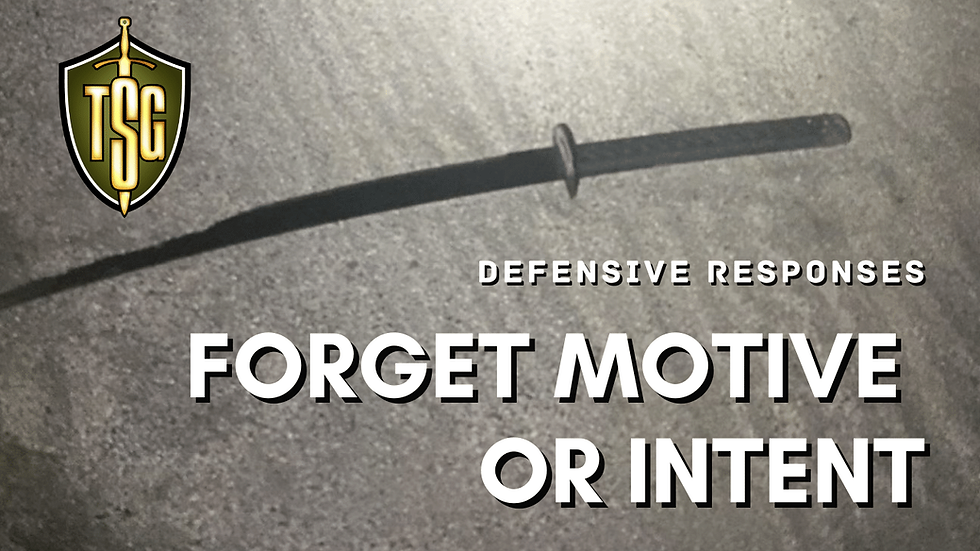Workplace Violence: Beware the Terminated Co-Worker
- Brad Parker

- Oct 25, 2021
- 4 min read

It's a normal Thursday at your work.
Unbeknownst to you, a fellow co-worker has been fired this morning. When you hear who it was, chances are many of you knew the guy was trouble. There are tales of bizarre or troubling behavior.
You should not be shocked when later that day the terminated employee shows up at the office with a handgun and starts shooting.
Shortly before 2:00 p.m., [terminated employee] returned to Agrex with a handgun and opened fire, striking three individuals. An employee then retrieved a shotgun from an office and returned fire, striking [the terminated employee].
This scene played out in Superior, Nebraska, at a grain elevator business when the Nuckolls County Sheriff’s Office, Superior Police Department, and the Nebraska State Police were dispatched in response to an active shooter incident at the Agrex Elevator.
Upon arrival, investigators located one deceased individual and multiple other victims. The reported shooter was also injured. There were no outstanding suspects at the time investigators arrived on scene.
Note this part from the above:
An employee then retrieved a shotgun from an office and returned fire...
That's exactly how you stop an active shooter. Retrieve a 12 gauge from an office and return fire at the attacker.
Wait, a shotgun? In an office?
If this is seemingly out of place to you, chances are you do not live in a rural area and you might be under the age of 40. There are places where people routinely have firearms on hand for work and for recreation. The story doesn't give us a lot of details surrounding the shotgun, who it belongs to, and why it was in the office in the first place.
In this case I'm not really interested in that detail because the moral of the story for me is:
We should be aware of potential threats at work.
Our employer should communicate when someone has been fired.
We should have an armed option to stop an active shooter at work.
In my career I have been involved in the management process for all three of these points:
When a potential threat finally comes to the attention of top management, the associates almost always are talking amongst themselves about the behavior and the concern about this threat. It's only when it has gotten so egregious that top management learns about it. Many times this comes up as some sort of complaint through the human resources department. Two cases that come to mind for me regard a young female who reported she felt threatened by the inappropriate sexual behavior of a man who had the reputation for being a "gun nut" and a short temper. Another one was a potential threat reported by a supervisor regarding the boyfriend of an associate who was filing a legal suit against the supervisor. In my experience, by the time you are interviewing co-workers about the threat you'll find they have spread the word amongst themselves. Yet, they rarely communicate upwards to management and security.
The termination of an employee is usually kept quiet at most companies. In most cases, the only people who get the heads up are in the IT department when they have to cut the employee's access to email and the rest of the system. Add the security department, if there is a security department. I've seen fellow co-workers questioned about letting a recently fired employee back on company grounds or back in the office. Turns out they didn't know the said employee was terminated. I would suggest business owners and management communicate to other team members about the change in status of a co-worker and the conditions allowing or disallowing them to be on company property.
There are companies with policies which restrict or disallow any firearms on property. Of course, this prevents you from having any armed option for responding to active shooters at the company. The human resources department might have a blanket firearms ban for all employees. Questions to ask here are:
Does the ban include the armed executive protection agents for the CEO?
Does the ban extend to employees' private vehicles in the parking lot?
Does the firearms ban mean employees should therefore receive the protection of armed security on site?
Is the company prepared to defend against civil lawsuits from employees who were denied their right to defend themselves?
I've been in a meeting where these questions were asked and the firearm ban proposal was quickly dropped.
You might be in a situation where the company policy denies your right to self-defense.
My recommendations:
Be aware of people in your surroundings.
Make sure you talk with your associates regarding potential problems. Those can be identified by behavioral changes in co-workers, incidents that may have happened off property, or provocative or bizarre statements made. Am I asking you to gossip? I prefer to call it "gathering intelligence".
Identify fellow co-workers you can count on to help mount a defense if needed.
Get training on how to respond to a deadly threat.
If you make the decision to carry a firearm in this environment, make sure you adhere to all of your state rules regarding concealed carry. Carry in a way that is ultra-discreet and secure.
If you carry, please be prepared for the emergency treatment of gunshot wounds. You are preparing for the the worst-case scenario.
We must be our own first-responder.



Comments